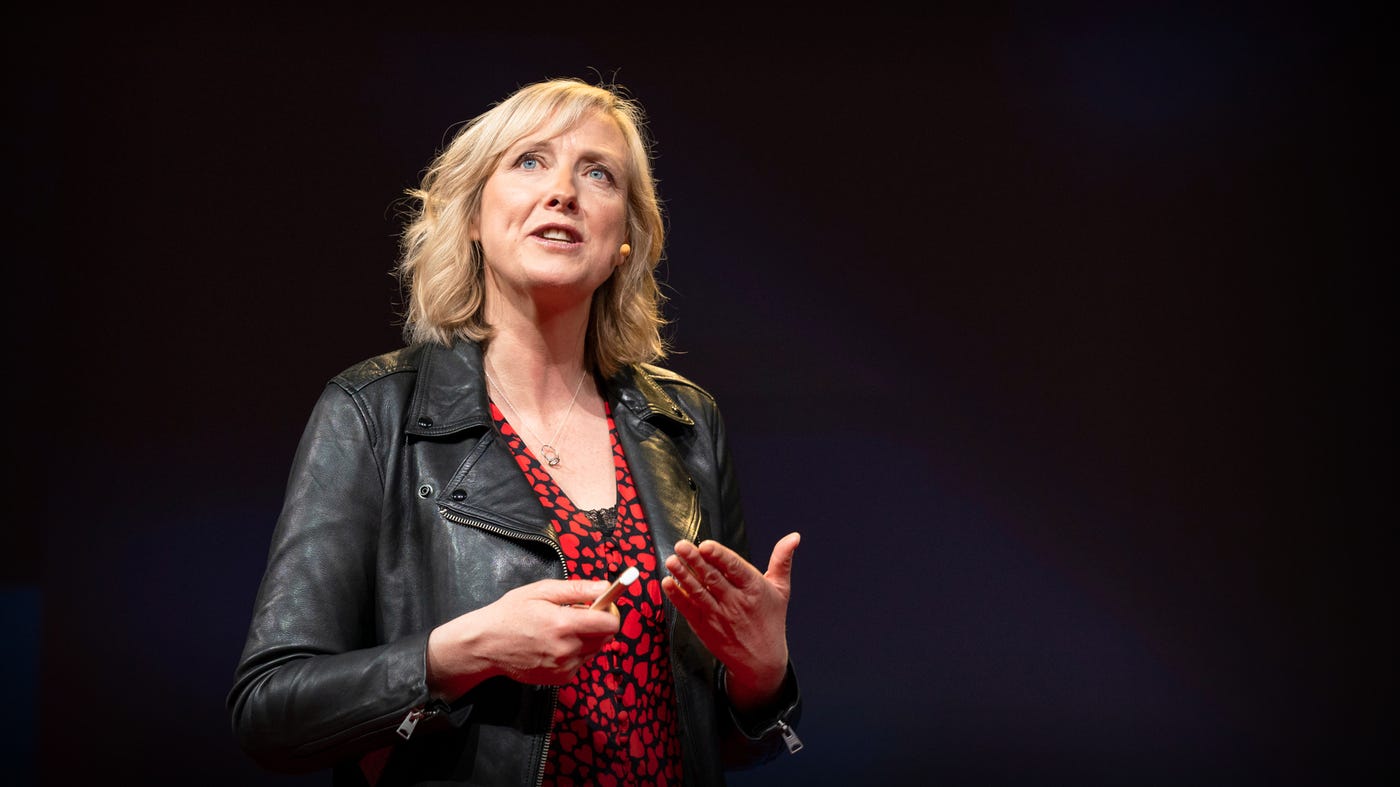
Do you wonder why it sounds like we are mostly hearing heralds in the town square who proclaim what they were told to say by the nobles who pay them?
For journalists and media outlets, telling the truth can cost nearly everything.
If you also visit my personal website, you’ve seen Carole Cadwalladr on the Resources tab in the list of recommended information sources to follow. She’s in the UK. Anywhere in the world, unless you’ve been living in a news blackout for several years, you probably know her work without realizing it.
You may be unaware of what publishing the truth cost her and how much more she is about to lose.
Let’s review some of her life story to help us appreciate the pressure under which so many others in journalism fold. It will help us understand why “hard news” (a double entendre if ever there was one) is coming most reliably from relatively small, independent sources like her, or the Tennessee Holler or Tennessee Lookout in the last state I lived in before moving abroad. We can glimpse the strength of character it takes to do what they do.
Cadwalladr is a journalist with the Observer, which until recently has been a sister publication to the Guardian. Both have stellar reputations for investigative reporting. They have dared to cover what other news outlets would not. They have been able to do so in large part because they were owned by a foundation, not a typical for-profit person or company. That ownership structure and the resources of the foundation made them able to take risks for-profit outlets would not touch.
Once, UK government was so incensed by the Guardian’s revelations of what it had been up to, it made the Guardian bash to smithereens the hard drive containing the information in front of government witnesses. The newspaper did so, but the demand came after it had published what it had uncovered from data on the drive. None of what they published was retracted. It was all based on facts the government simply did not want known.
That’s at the mild end of how powerful people seek to punish those who reveal what they’ve been doing. Cadwalladr has gotten some nasty tastes of it.
Do you remember that I said you probably know her reporting?
Cadwalladr blew the lid off Cambridge Analytica. (Click here for key stories from that investigation.) She connected their work using data they got from Facebook with their work in the UK to promote Brexit and in the USA for Donald Trump’s first election campaign. This won a couple of journalism awards for her. She also drew unwelcome attention to powerful people. Those included Mark Zuckerberg (who had to testify to Congress and issue a public apology for the Facebook data breach), Steve Bannon, and Robert Mercer (whose role in all of this had been going unnoticed).
Fast forward from there. In July 2019, Arron Banks sued Cadwalladr for libel. Banks is a millionaire who backed the Leave side in the Brexit referendum. He sued her rather than the Observer, putting her personally on the hook for everything. This strategy is typical in a Strategic Lawsuit Against Public Participation (SLAPP) in the UK. Putting a crushing burden on a critic is intended to silence them.
Cadwalladr appeared to prevail in court after an expensive high-stress ordeal. Banks lost his case, which hinged upon remarks she made in a TED talk and in a tweet. But Banks appealed. The appeals court partially reversed his loss, with the judge relying for this decision on his own interpretation of what she said rather than what she actually said. Then, using UK rules that make the loser of a legal case pay costs of the winner, the court ordered Cadwalladr to pay about £1.2 million to Banks for the portion of Banks’ lawsuit that he won on appeal.
Cadwalladr is an exceptionally good, diligent journalist, not a millionaire. Readers crowdfunded to help her pay legal costs.
That isn’t all.
Recently the Guardian sold the Observer to a small podcast company. The reason given for the sale made no sense. It was supposedly to save both titles from unsustainable financial drag at the Observer. Financials didn’t fit the purported reason. The podcast company is very small and does not have the background to operate an esteemed major investigative news outlet. The 100+ journalists at the Observer protested loudly and even went on strike, to no avail.
In about a month Cadwalladr’s job and the jobs of most (all?) of her colleagues at the Observer will disappear. Her contacts, experience, excellent mind and nerves of steel will still be working hard—in Substack rather than a newspaper.
Much of journalism and the media caved in, giving the oligarchs and pro-authoritarian figures the coverage they wanted in recent years. But certainly not all. Cadwalladr is only one among those who still champion truth and reality.
It’s up to each of us to find a few of them and support their courage by supporting their work.
—
Postscript: For months I stopped listening to Rachel Maddow. She seemed to lose her compass for a while. But she is back five nights a week for the first 100 days of this regime. I decided to listen, and her compass is working again. She is on fire. I especially recommend her show this past Monday night, several minutes into it, when she talks about autocratic breakthrough.
That topic, right there, is why it is so important for us to find and support people who are so brave that they will stand up and tell us as much of the truth as they are able to find.




There's a price to pay if you're a truth teller in this world. Thank goodness they do it anyway.